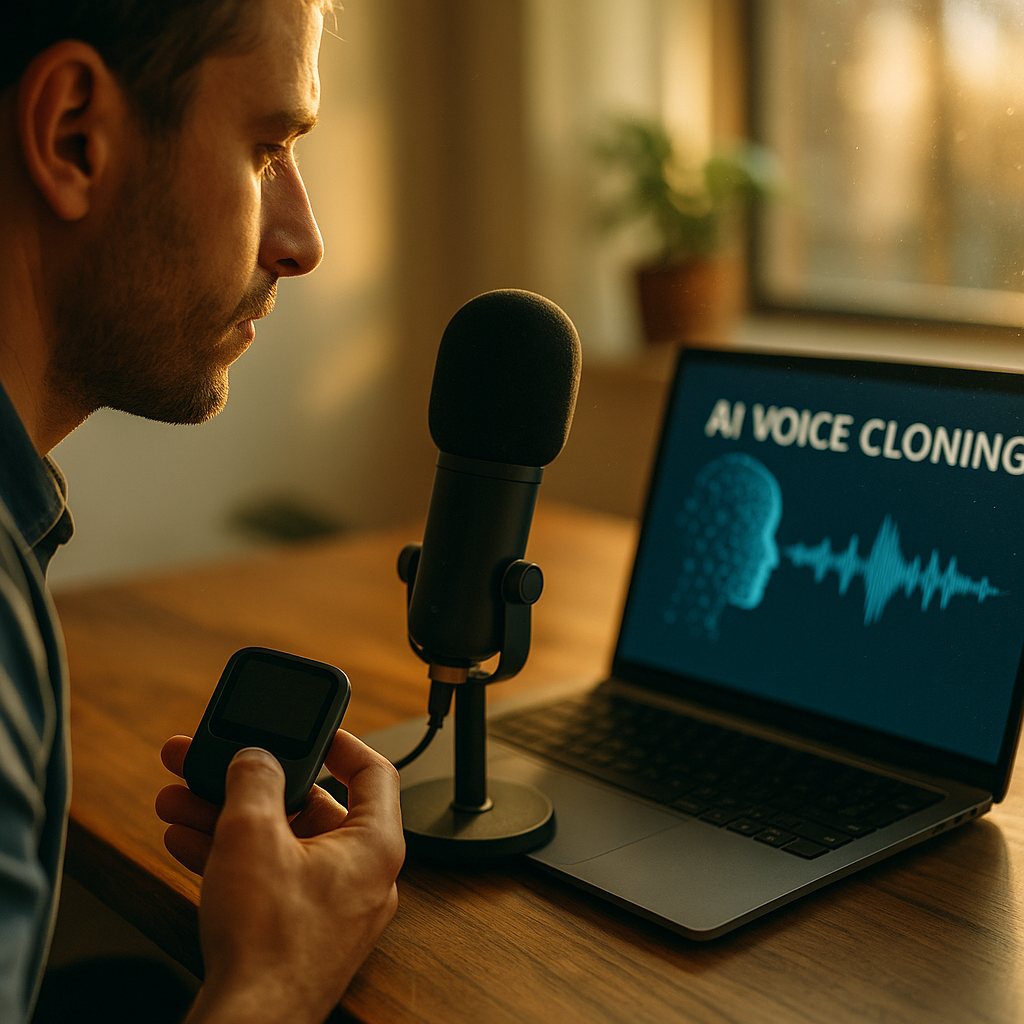Ai voice cloning gives brands powerful ways to reach audiences and personalize experiences. But as this technology advances in 2025, responsible use is critical for trust and compliance. How can brands harness AI voice cloning while protecting rights and reputations? Explore essential strategies for ethical implementation below.
Understanding Ai Voice Cloning for Brand Marketing
Ai voice cloning replicates a person’s natural speech using artificial intelligence. In brand marketing, this lets businesses automate content, personalize communications, and even resurrect legacy voices for campaigns. According to Statista, global AI adoption has doubled since 2023, making responsible deployment a competitive necessity.
The appeal is clear: voice clones boost engagement, streamline customer service, and power advertising innovations. But with this power comes new ethical and legal obligations.
Prioritizing Consent and Transparency with Ai Voice Cloning
Obtaining consent and ensuring transparency are non-negotiable when using AI voice cloning. Brands should:
- Secure clear, written permission from voice owners before recording, replicating, or distributing their voice. This is critical for celebrities, former executives, or even customers featured in ads.
- Inform audiences when interacting with cloned voices, especially in customer support, advertising, or storytelling.
- Implement robust documentation of consent, usage intentions, and expiration timelines to avoid disputes.
Transparency builds trust. In 2025, consumer surveys from Edelman confirm that clarity around AI use—especially with voice—improves brand favorability by 22%.
Preventing Misuse through Rigorous Governance and Security
The risks of voice cloning—misinformation, identity theft, and fraud—demand disciplined AI governance. Responsible brands should:
- Establish internal policies for who can request, approve, and deploy cloned voices.
- Utilize watermarking or audio signatures to differentiate authentic recordings from synthetic ones, helping trace misuse if it occurs.
- Apply regular audits to ensure voice models are used only as authorized and that data handling remains compliant with regulations like GDPR or CCPA.
- Train teams in ethical AI standards and red-team (test) cloned voice scenarios for potential vulnerabilities.
These steps not only mitigate reputational harm but also prevent costly litigation and regulatory penalties.
Upholding Brand Integrity and Ethical Storytelling
AI voice cloning opens creative frontiers, but brands remain accountable for how voice clones represent real individuals and their legacy.
- Align voices with intent: Only use a cloned voice for approved scenarios. For instance, don’t turn a CEO’s voice from an educational podcast into product endorsements without extra consent.
- Avoid deepfake manipulation: Never put fabricated words in someone’s mouth, especially on sensitive issues (politics, health, personal values).
- Respect posthumous rights: For deceased figures, consult estates and adhere to moral, not just legal, standards to avoid backlash or exploitation claims.
According to a 2025 Deloitte report, 79% of consumers believe brands are responsible for how they use AI “personalities,” making ethical storytelling a bottom-line issue.
Complying with Legal Standards and Industry Guidelines
Legal frameworks for AI voice cloning are evolving rapidly. In 2025, the AI Transparency Act in the U.S. and similar laws in the EU require brands to:
- Notify users when content is AI-generated, especially in marketing or customer interactions.
- Offer opt-out mechanisms for those who do not wish to engage with AI voice clones.
- Document data provenance and model training data to defend against copyright or privacy lawsuits.
Staying current with these regulations is not optional. Legal missteps hurt both brand reputation and finances, with fines for AI misuse reaching up to $5 million in some jurisdictions this year.
Fostering Consumer Trust through Responsible AI Voice Cloning
Ultimately, responsible usage centers on winning—and keeping—consumer trust. Brands that lead in ethical AI voice cloning:
- Communicate their AI principles publicly via policy pages, ad disclaimers, and press releases.
- Invite feedback from users concerned about voice usage or possible manipulation.
- Partner with third-party watchdogs to certify responsible AI practices.
- Invest in continual improvement as technology and norms evolve.
Positive brand-customer relationships today hinge on transparency, respect, and verifiable responsibility with AI voice technologies.
Conclusion: The Path to Ethical and Effective Ai Voice Cloning
AI voice cloning can drive innovation and connection—but only when wielded responsibly. Brands must prioritize consent, transparency, security, and legal compliance at every step. By creating practical safeguards and communicating openly, brands unlock AI’s benefits while building lasting trust. Invest in responsible AI today for sustainable brand success tomorrow.
FAQs: Responsible Ai Voice Cloning for Brands
-
What is the primary risk of AI voice cloning in brand marketing?
The biggest risks are unauthorized use, reputation damage, misinformation, and legal liability due to misuse. Responsible governance, consent, and security dramatically reduce those risks. -
How can customers tell if a voice is AI-cloned?
Brands should clearly disclose when voices are synthetic. Some use audio watermarks or subtle cues. As of 2025, regulations require explicit notification for AI-generated content. -
Is it legal to use AI voice cloning without the original person’s consent?
No. Laws in 2025 require brands to obtain consent before cloning and deploying someone’s voice. Always seek clear permission and follow jurisdiction-specific regulations. -
How do brands protect against deepfake misuse?
Brands implement strict internal policies, watermarking, regular audits, and employee training to prevent misuse. Collaborating with external auditors and keeping up with cybersecurity best practices also help. -
Can brands use the voices of deceased individuals in campaigns?
Yes, but only with permission from the estate or legal heirs. Beyond legality, ethical considerations and respectful storytelling are vital for protecting legacy and reputation.
